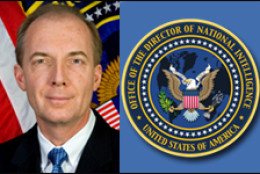Intelligence Community
-
Perhaps nowhere in the federal workforce is trust more frail than in the intelligence community. It is still reeling from the revelations of former NSA contractor Edward Snowden. The Director of National Intelligence recently issued two policies to clamp down on employees' speech. The first says only a few authorized officials can talk with journalists. In this week's Legal Loop, Tom and Emily looked at the policy's impact on trust in the intelligence community as part of our special report, Trust Redefined: Reconnecting Government and Its Employees. Employment lawyer Debra Roth said on The Federal Drive the new policy stands out because it covers unclassified information.
May 22, 2014 -
After a decade of increases to the intelligence community's workforce, it's time to cut back once again. But IC leaders say they'll take a strategic approach this time around.
May 08, 2014 -
The Defense Department and the intelligence community are both in the process of collapsing their IT stovepipes into common sets of IT services. While the governing bodies that oversee these two parallel efforts do communicate with one another, they have different operating models and objectives. Now, leaders are looking to see how they can connect the Venn diagrams and save money, time and effort in the process.
April 18, 2014 -
The National Geospatial-Intelligence Agency is focusing on four programs to add more value to how it delivers GIS content and services to the DoD and intelligence communities. Director Letitia Long said the community is in phase three of the evolution of using and sharing geospatial information.
February 12, 2014 -
Employees at the departments of Treasury, Homeland Security and State can use their HSPD-12 smart cards to log onto the intelligence community's unclassified sharing platform. Most recently, the departments of Health and Human Services, Veterans Affairs and the Justice Department's Bureau of Alcohol, Tobacco, Firearms and Explosives will have access to the tools and applications through their smart identity cards.
December 11, 2013 -
The Marine Corps is trying to develop ways to automatically push the vast array of intelligence information gathered by military sensors to low-level marines on the battlefield.
December 02, 2013 -
Legislators want to strengthen OPM's ability to oversee the security clearance process to thwart under-qualified candidates from obtaining and keeping security clearances.
July 22, 2013 -
Government contractors with security clearances, such as Edward Snowden, aren't legally protected from whistleblowing even by going through the proper channels. But John Mahoney, of the law firm Tully Rinckey, said Snowden should have defaulted to the standard whistleblowing procedure used by government employees in the intelligence community, who are protected under the law.
June 17, 2013 -
James Clapper, the director of National Intelligence, tells Federal News Radio he's concerned about the effects of sequestration on the intelligence community.
February 15, 2013 -
Al Tarasiuk, the chief information officer for ODNI and for the intelligence community, said the IC-IT Enterprise strategy is centralizing technology services across the 17 agencies. October 11, 2012(Encore presentation November 22, 2012)
October 11, 2012 -
The Defense Department and the intelligence community are working on joint data standards as they migrate toward enterprise IT environments. Both organizations also are implementing roles-based, access control to ensure secure information sharing.
October 11, 2012 -
Employees in the intelligence community (IC) who report waste, fraud and abuse have gained whistleblower protections, under a directive President Barack Obama issued Wednesday. The presidential policy directive aims to ensure intelligence and national security employees are able to legally report agency wrongdoing and be protected from retaliation for doing so.
October 10, 2012 -
Intelligence community observer Ellen McCarthy says massive across-the-board spending cuts would result in significant layoffs in both the federal government and the private sector.
August 13, 2012 -
Chief information officers in the intelligence community said despite cultural challenges, it makes sense to treat the IC as one IT enterprise. They owe an implementation plan to IC agency heads by the end of this year.
October 21, 2011 -
After a decade of uninterrupted spending growth, the Office of the Director of National Intelligence has submitted budget cutting plans for intelligence agencies to the White House. The intelligence community will try to save money mostly through IT efficiencies, and will try to protect its civilian workforce while drawing down on its reliance upon contractors.
October 18, 2011




